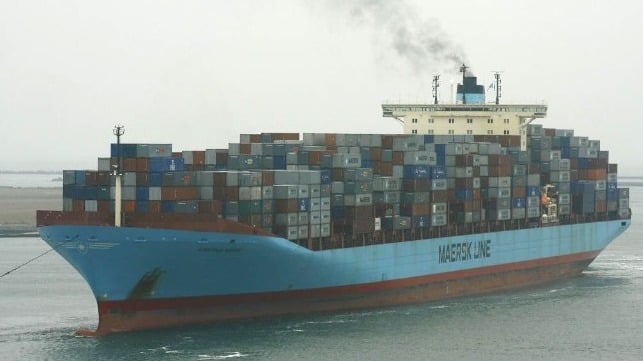Maersk Predicts a Return to Pre-COVID Container Volume Next Year

On Wednesday, number-one ocean carrier Maersk announced a significant increase in operating earnings in the second quarter, despite the global drop in volume due to the COVID-19 pandemic. CEO Soren Skou also forecast that Maersk would see a return to pre-COVID cargo volume levels within a year's time.
"Our operating earnings improved by 25 percent, marking the eighth consecutive quarter with year-on-year improvements, driven by strong cost performance across all our businesses, lower fuel prices and higher freight rates . . . and increased profitability in [logistics and services]," Skou said in a statement.
EBITDA was also strong at $1.5 billion for the quarter, with healthier margins than last year - despite a 6.5 percent drop in revenue and a cargo volume decrease of 16 percent. Maersk offset the revenue drop by laying up or redeploying ships, cutting costs. Lower bunker prices and higher freight rates also boosted performance.
The carrier now forecasts full-year earnings in the range of $6-7 billion - an enviable number in a challenging era - even though demand will likely be down for the year. Maersk hopes to see volume recovery beginning this quarter, and it is optimistic about the world's return to trading.
“Our expectation is that some time during the first half next year we will have volumes back at the level we had in 2019," Skou said at a press conference Wednesday.
However, Skou also told the Financial Times that the firm still faces a "massive problem" shared by all shipowners - the challenge of crew change in the coronavirus era. Maersk has created a preboarding quarantine and testing program for oncoming crewmembers, reducing risk of introducing the disease to a ship, but a third of its currently-deployed seafarers are working beyond the term of their contracts. “Initially, people took this in good spirit and thought they would earn a bit more by being out a bit longer. As time went on, we started to see more and more mental fatigue," Skou told FT.
